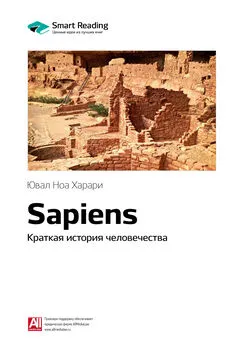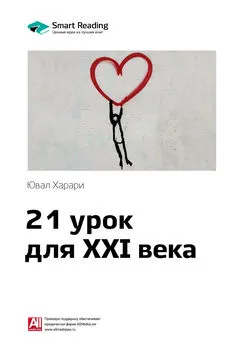Юваль Ной Харари - 21 урок для XXI века [Версия с комментированными отличиями перевода]
- Название:21 урок для XXI века [Версия с комментированными отличиями перевода]
- Автор:
- Жанр:
- Издательство:неизвестно
- Год:2019
- ISBN:нет данных
- Рейтинг:
- Избранное:Добавить в избранное
-
Отзывы:
-
Ваша оценка:
Юваль Ной Харари - 21 урок для XXI века [Версия с комментированными отличиями перевода] краткое содержание
Издательство «Синдбад» внесло существенные изменения в содержание перевода, в основном, в тех местах, где упомянуты Россия, Украина и Путин. Хотя это было сделано с разрешения автора, сравнение версий представляется интересным как для прояснения позиции автора, так и для ознакомления с политикой некоторых современных российских издательств.
Данная версии файла дополнена комментариями с исходным текстом найденных отличий (возможно, не всех). Также, в двух местах были добавлены варианты перевода от
. Для удобства поиска, а также большего соответствия теме книги, добавленные комментарии отмечены словом «post-truth».
«Моя главная задача — сделать так, чтобы содержащиеся в этой книге идеи об угрозе диктатуры, экстремизма и нетерпимости достигли широкой и разнообразной аудитории. Это касается в том числе аудитории, которая живет в недемократических режимах. Некоторые примеры в книге могут оттолкнуть этих читателей или вызвать цензуру. В связи с этим я иногда разрешаю менять некоторые острые примеры, но никогда не меняю ключевые тезисы в книге»
21 урок для XXI века [Версия с комментированными отличиями перевода] - читать онлайн бесплатно ознакомительный отрывок
Интервал:
Закладка:
Indeed, from Russia’s perspective, all its supposedly aggressive moves in recent years were not the opening gambits of a new global war, but rather an attempt to shore up exposed defences. Russians can justifiably point out that after their peaceful retreats in the late 1980s and early 1990s they were treated like a defeated enemy. The USA and NATO took advantage of Russian weakness, and despite promises to the contrary, expanded NATO to eastern Europe and even to some former Soviet republics. The West went on to ignore Russian interests in the Middle East, invaded Serbia and Iraq on doubtful pretexts, and generally made it very clear to Russia that it can count only on its own military power to protect its sphere of influence from Western incursions. From this perspective, recent Russian military moves can be blamed on Bill Clinton and George W. Bush as much as on Vladimir Putin.
post-truth 9
Далее в переводе от «Синдбад» пропущен абзац:
Even more importantly, Putin’s Russia lacks a universal ideology. During the Cold War the USSR relied on the global appeal of communism as much as on the global reach of the Red Army. Putinism, in contrast, has little to offer Cubans, Vietnamese or French intellectuals. Authoritarian nationalism may indeed be spreading in the world, but by its very nature it is not conducive to the establishment of cohesive international blocs. Whereas Polish communism and Russian communism were both committed, at least in theory, to the universal interests of an international working class, Polish nationalism and Russian nationalism are by definition committed to opposing interests. As Putin’s rise sparks an upsurge of Polish nationalism, this will only make Poland more anti-Russian than before.
post-truth 10
Абзац отсутствует в оригинале. От всего вступительного подраздела из семи абзацев остался только второй абзац (также измененный).
Оригинал:
We are repeatedly told these days that we are living in a new and frightening era of ‘post-truth’, and that lies and fictions are all around us. Examples are not hard to come by. Thus in late February 2014 Russian special units bearing no army insignia invaded Ukraine and occupied key installations in Crimea. The Russian government and President Putin in person repeatedly denied that these were Russian troops, and described them as spontaneous ‘self-defence groups’ that may have acquired Russian-looking equipment from local shops. As they voiced this rather preposterous claim, Putin and his aides knew perfectly well that they were lying.
Russian nationalists can excuse this lie by arguing that it served a higher truth. Russia was engaged in a just war, and if it is OK to kill for a just cause, surely it is also OK to lie? The higher cause that allegedly justified the invasion of Ukraine was the preservation of the sacred Russian nation. According to Russian national myths, Russia is a sacred entity that has endured for a thousand years despite repeated attempts by vicious enemies to invade and dismember it. Following the Mongols, the Poles, the Swedes, Napoleon’s Grande Armée and Hitler’s Wehrmacht, in the 1990s it was NATO, the USA and the EU that attempted to destroy Russia by detaching parts of its body and forming them into ‘fake countries’ such as Ukraine. For many Russian nationalists, the idea that Ukraine is a separate nation from Russia constitutes a far bigger lie than anything uttered by President Putin during his holy mission to reintegrate the Russian nation.
Ukrainian citizens, outside observers and professional historians may well be outraged by this explanation, and regard it as a kind of ‘atom-bomb lie’ in the Russian arsenal of deception. To claim that Ukraine does not exist as a nation and as an independent country disregards a long list of historical facts – for example, that during the thousand years of supposed Russian unity, Kyiv and Moscow were part of the same country for only about 300 years. It also violates numerous international laws and treaties that Russia has previously accepted and that have safeguarded the sovereignty and borders of independent Ukraine. Most importantly, it ignores what millions of Ukrainians think about themselves. Don’t they have a say about who they are?
Ukrainian nationalists would certainly agree with Russian nationalists that there are some fake countries around. But Ukraine isn’t one of them. Rather, these fake countries are the ‘Luhansk People’s Republic’ and the ‘Donetsk People’s Republic’ that Russia has set up to mask its unprovoked invasion of Ukraine.
Whichever side you support, it seems that we are indeed living in a terrifying era of post-truth, when not just particular military incidents, but entire histories and nations might be faked. But if this is the era of post-truth, when, exactly, was the halcyon age of truth? In the 1980s? The 1950s? The 1930s? And what triggered our transition to the post-truth era – the Internet? Social media? The rise of Putin and Trump?
A cursory look at history reveals that propaganda and disinformation are nothing new, and even the habit of denying entire nations and creating fake countries has a long pedigree. In 1931 the Japanese army staged mock attacks on itself to justify its invasion of China, and then created the fake country of Manchukuo to legitimise its conquests. China itself has long denied that Tibet ever existed as an independent country. British settlement in Australia was justified by the legal doctrine of terra nullius (‘nobody’s land’), which effectively erased 50,000 years of Aboriginal history.
In the early twentieth century a favourite Zionist slogan spoke of the return of ‘a people without a land [the Jews] to a land without a people [Palestine]’. The existence of the local Arab population was conveniently ignored. In 1969 Israeli prime minister Golda Meir famously said that there is no Palestinian people and never was. Such views are very common in Israel even today, despite decades of armed conflicts against something that doesn’t exist. For example, in February 2016 MP Anat Berko gave a speech in the Israeli Parliament in which she doubted the reality and history of the Palestinian people. Her proof? The letter ‘p’ does not even exist in Arabic, so how can there be a Palestinian people? (In Arabic, ‘f’ stands for ‘p’, and the Arabic name for Palestine is Falastin.)
Перевод первых двух абзацев от «The Insider»:
Сегодня нам постоянно говорят, что мы живем в новую и пугающую эру «постправды», и что ложь и вымысел всюду окружают нас. За примерами далеко ходить не надо. В конце февраля 2014 года российские специальные войска без каких-либо опознавательных знаков, вторглись в Украину и оккупировали стратегические объекты в Крыму. Российское правительство и лично президент Путин несколько раз отрицали, что это были российские войска, и описывали их как стихийные «отряды самообороны», которые приобрели униформу, похожую на российскую, в местных магазинах. Когда они делали такие довольно нелепые утверждения, Путин и его соратники прекрасно знали, что они врут.
Российские националисты могут найти оправдания этой лжи, заявив, что она служила высшей цели. Россия вступила в праведную войну, и если допустимо убивать ради праведной цели, то, конечно, допустимо и врать? Высшая цель, которая якобы оправдывала вторжение в Украину, — это сохранение священной российской нации. Согласно российским национальным мифам, Россия — это священное объединение, которое сохранялось на протяжении тысяч лет, несмотря на повторяющиеся попытки злобных врагов завоевать и разделить ее на части. Следуя по стопам монголов, поляков, шведов, армии Наполеона и гитлеровского Вермахта, в 90-х НАТО, США и ЕС попытались уничтожить Россию, отрезав от нее части и создав из них «страны-фейки», в том числе Украину. Для многих российских националистов идея того, что Украина — отдельная от России страна, — это намного большая ложь, чем все, что сказал президент Путин во время своей священной миссии по восстановлению российской нации.
post-truth 11
Заголовок отсутствует в переводе от «Синдбад», по-видимому, из-за сильного сокращения предыдущего подраздела.
post-truth 12
В оригинале:
Facebook, Trump or Putin
post-truth 13
В переводе от «Синдбад» пропущены два предложения:
Today Ukrainians complain that Putin has successfully deceived many Western media outlets about Russia’s actions in Crimea and Donbas. Yet in the art of deception he can hardly hold a candle to Stalin.
post-truth 14
В оригинале:
Ukrainians and other Soviet citizens
post-truth 15
В переводе от «Синдбад» пропущено предложение:
In Ukraine, for example, Russian soldiers are really fighting, thousands have really died, and hundreds of thousands have really lost their homes.
Интервал:
Закладка:
![Обложка книги Юваль Ной Харари - 21 урок для XXI века [Версия с комментированными отличиями перевода]](/books/1080711/yuval-noj-harari-21-urok-dlya-xxi-veka-versiya-s-ko.webp)

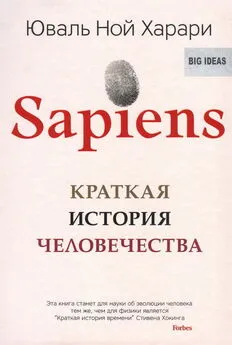
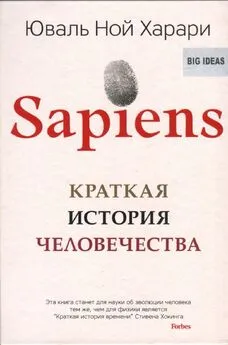
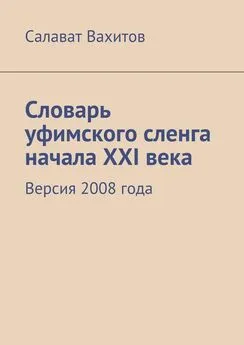
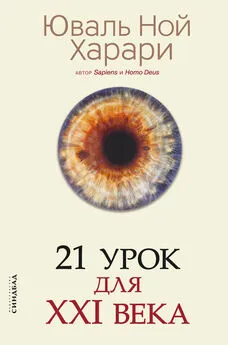
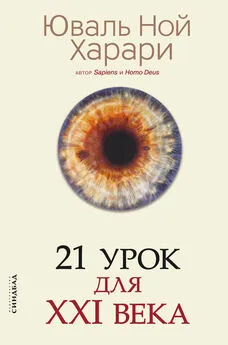
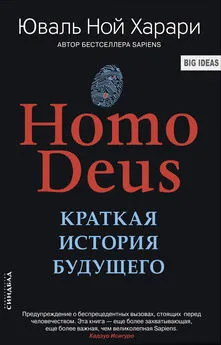
![Юваль Ной Харари - Sapiens. Краткая история человечества [litres]](/books/1102059/yuval-noj-harari-sapiens-kratkaya-istoriya-cheloveche.webp)
